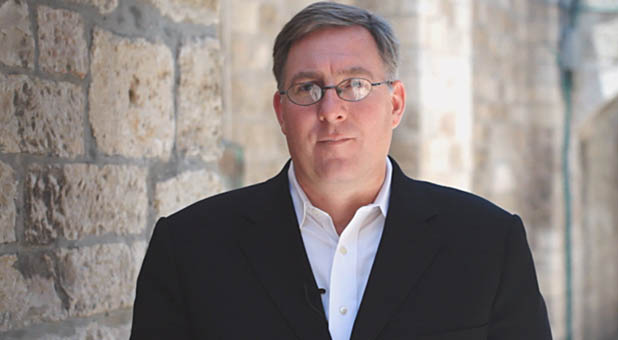Joel C. Rosenberg: This Key Middle East Ally Needs Our Help Now
In an op-ed written for Jerusalem Post on Tuesday, novelist Joel C. Rosenberg says one of our best allies in the Middle East is in desperate need of U.S. assistance.
“Last month, Lynn and I were blessed with the tremendous honor of spending several days in Jordan to meet with King Abdullah II,” he wrote on his personal blog as an introduction to the op-ed. “Our visit included tours of various military bases and the Zaatari refugee camp, briefings from senior military officials, and an up-close look at how His Majesty is dealing with the Syrian civil war, a tidal wave of refugees and the growing threat of the Islamic State.
“We were deeply grateful for the opportunity and came away even more impressed with the king’s leadership than when we arrived. But we also saw how urgently Jordan needs more help from the West and the Arab world—before it’s too late.”
In the op-ed, Rosenberg makes three key points:
First, Jordan’s king is sitting on a volcano, nearly surrounded by a raging forest fire, bracing for a massive earthquake—“To his north, Syria is imploding. To his east, Iraq has been massively destabilized. Some 1.3 million refugees have poured into Jordan from Syria alone, and more are coming every day, putting enormous pressure on Jordan’s struggling economy. ISIS leaders have publicly vowed to invade Jordan, “slaughter” the king, whom they denounce as an “ally of the Crusaders,” and raise their black flags over Amman.”
Second, King Abdullah was born for this moment—“As a 43rd-generation direct descendant of the Prophet Muhammad, the 54-year-old monarch has real credibility with his people when it comes to countering the radical and apocalyptic theological narratives espoused by Abu Bakr al-Baghdadi and other ISIS leaders. … [H]e is also one of the Islamic world’s leading reformers, working with clerics and scholars throughout Jordan and the region to define and advance a moderate, tolerant, peaceful vision of Islam. What’s more, as a career soldier trained at the best British military schools and a natural leader who rose through the ranks to become the commander of Jordan’s Special Operations forces prior to ascending to the throne, the king is uniquely qualified to protect his people from the ISIS threat.”
Third, the king is ready, willing and able to be even more actively engaged in the fight against ISIS, and to continue caring for so many Muslim and Christian refugees, but he needs more U.S. and international assistance to do this effectively—“Jordan currently has eight Blackhawk military helicopters, which it recently received from the US in early March, and for which it is very grateful. However, to conduct effective missions against ISIS jihadis in Iraq and Syria, Jordanian forces need at least 12 Blackhawks. Another eight Blackhawks have been promised by the U.S., but they aren’t expected to be delivered until the end of 2017 … In 2014, only 28 percent of the promised aid was delivered. In 2015, the number was only 35 percent … In 2012, the US gave Jordan $460 million in foreign aid. This year, Congress and the Obama administration will provide $1 billion in aid. But why isn’t President Obama pressing other countries to do more?”
Rosenberg said he was already intrigued with Jordan’s “warrior king” before meeting him, which is why he had used the monarch as a central character in both of his recent novels about ISIS. But the trip to Amman definitely made an impression upon him.
“[S]pending personal time with him and his generals, and seeing the extraordinary lengths to which the king is going to defeat the forces of Islamic extremism, deeply impressed me,” he wrote. “King Abdullah II is, without question, the West’s most faithful Sunni Arab ally. But as he engages in a hot war against a genocidal enemy he needs far more help from the U.S. and the international community—and he needs it now. Let’s give him what he needs, before it’s too late.”
















































